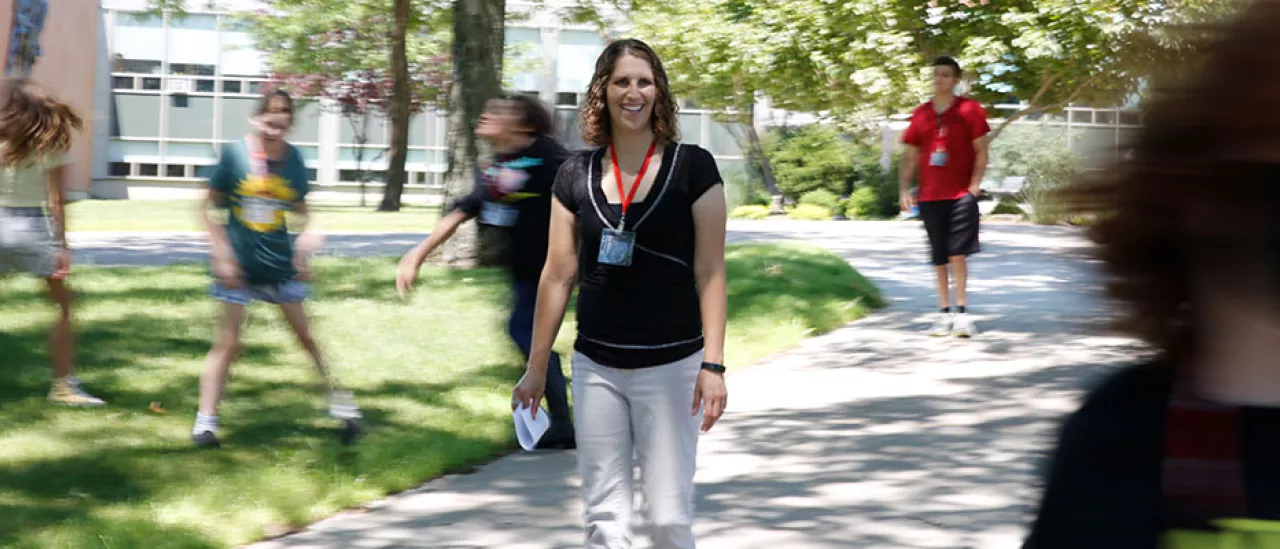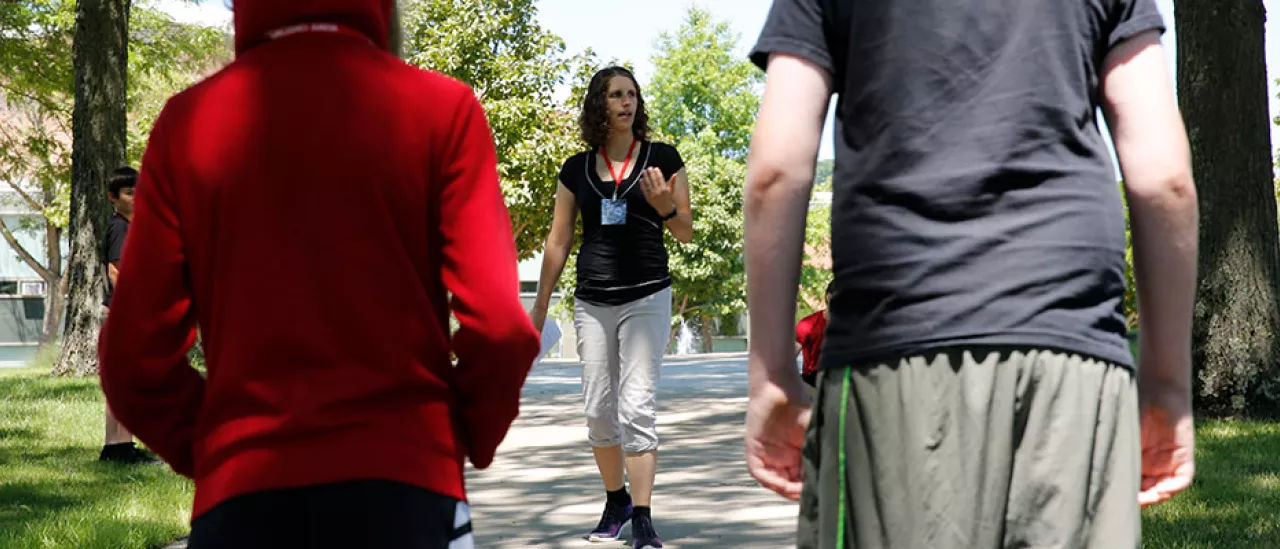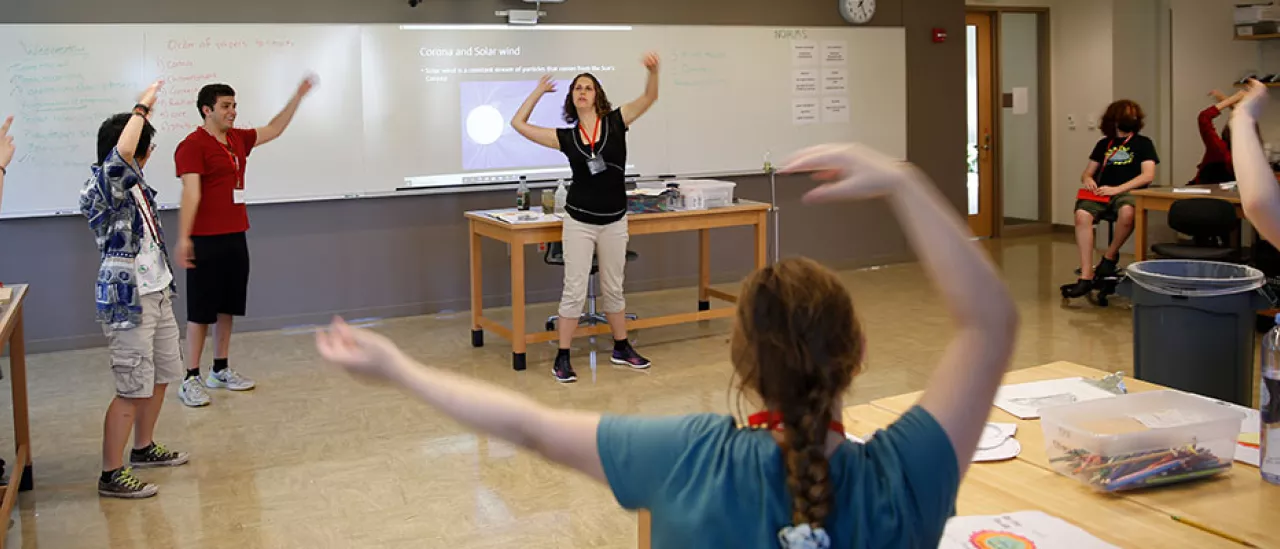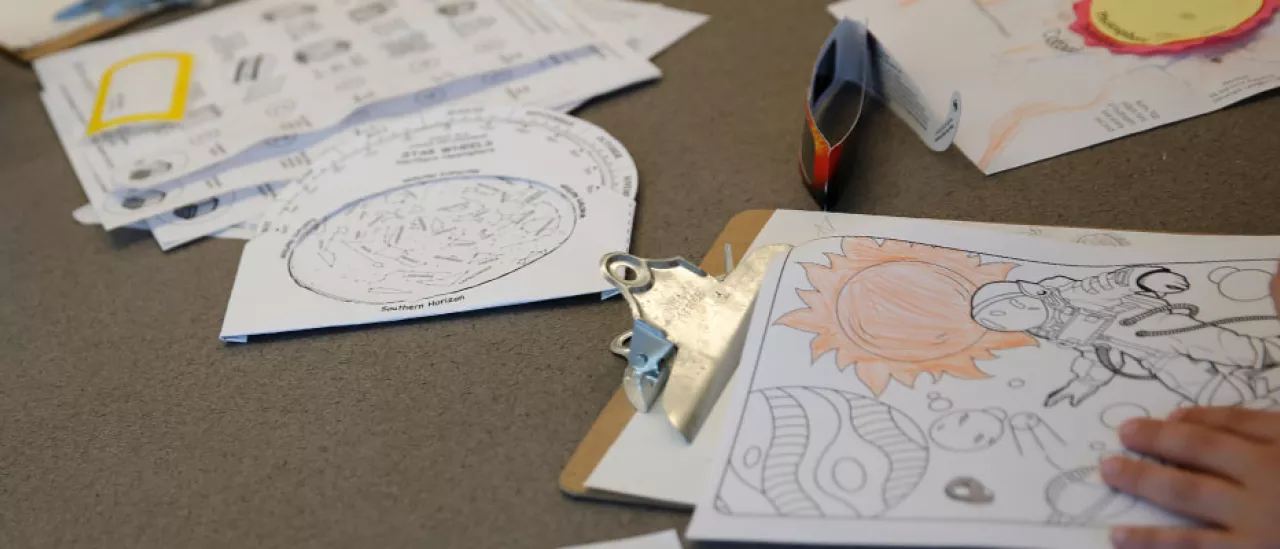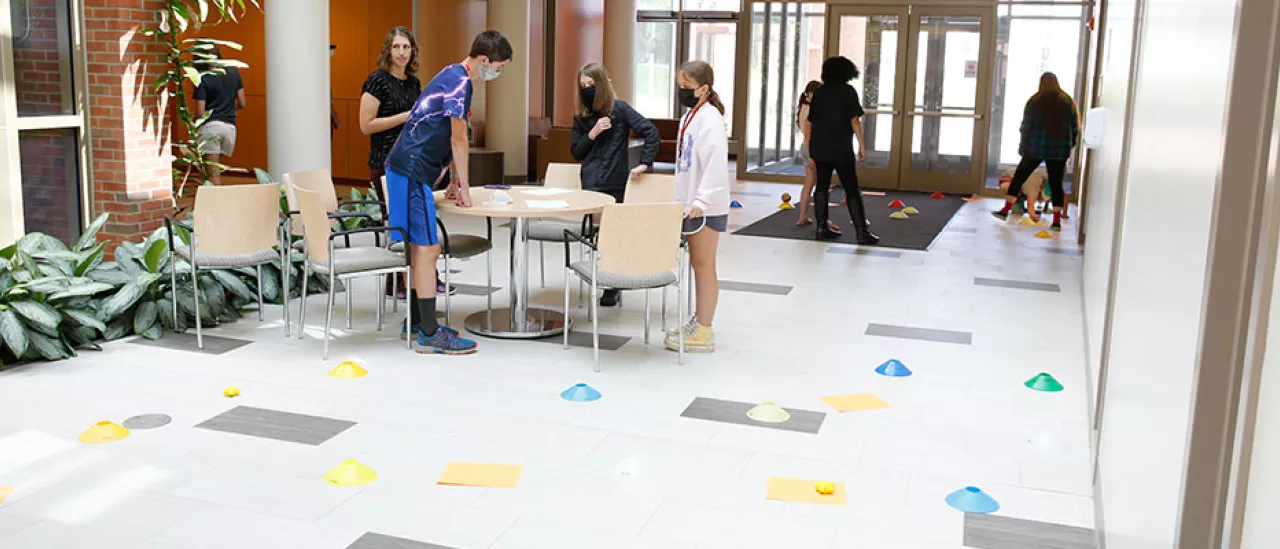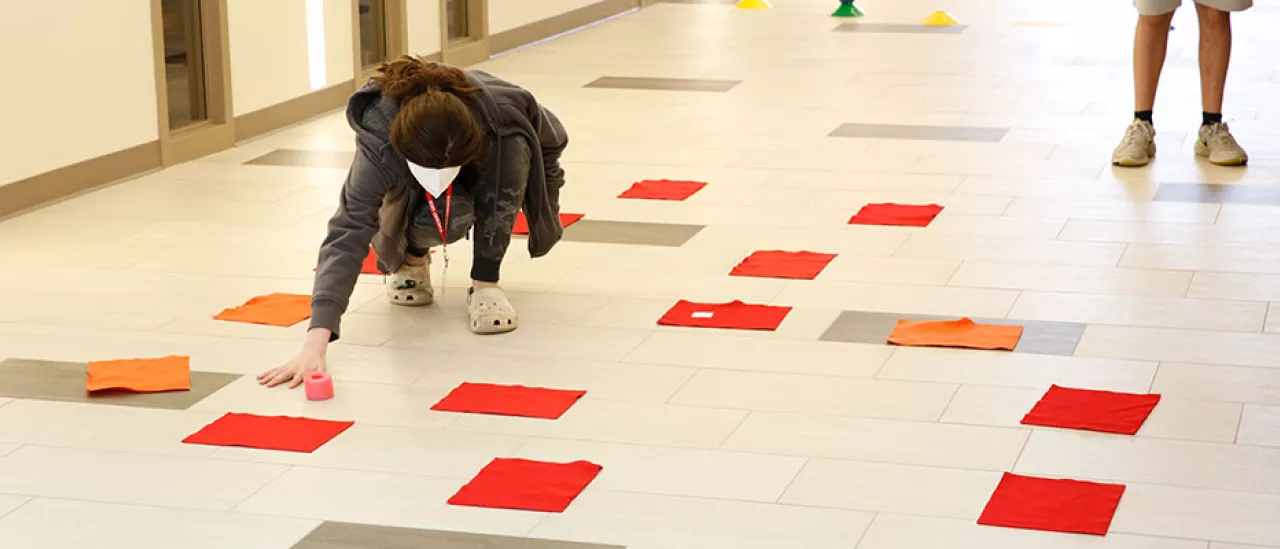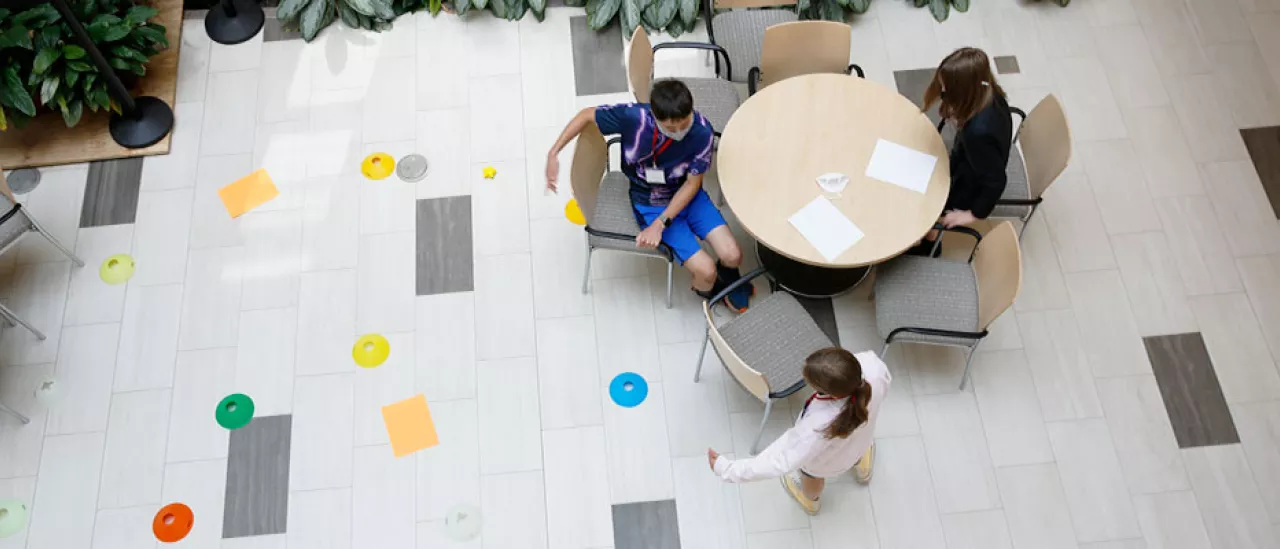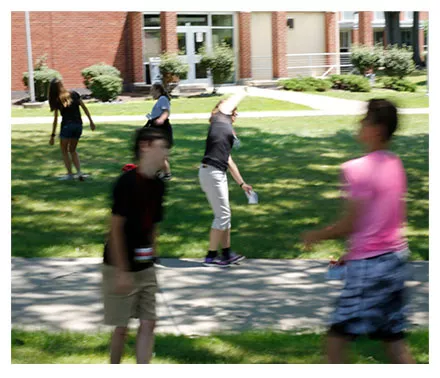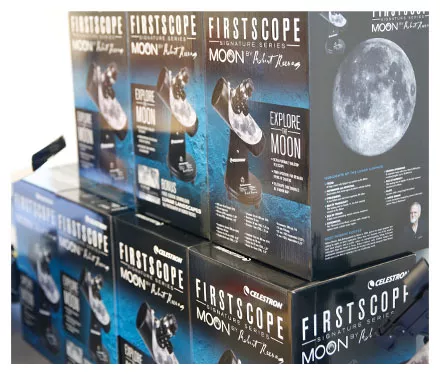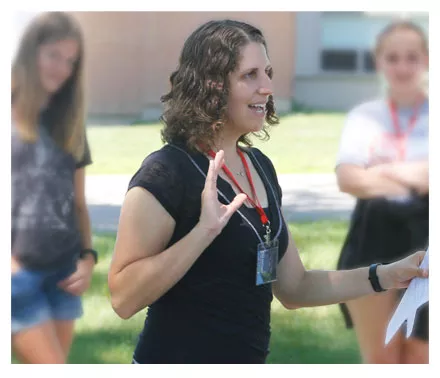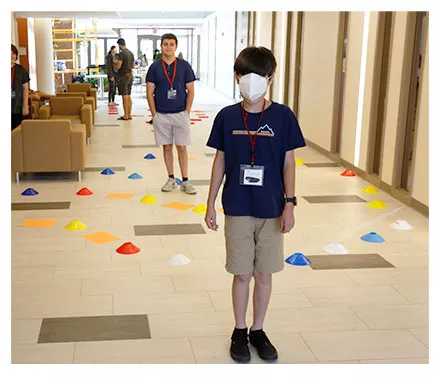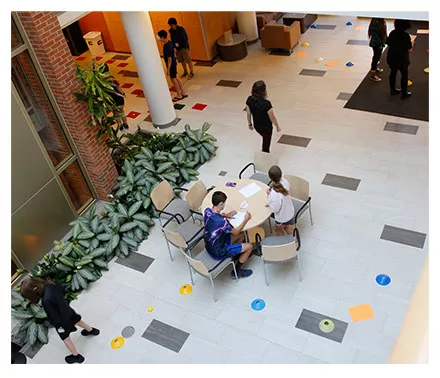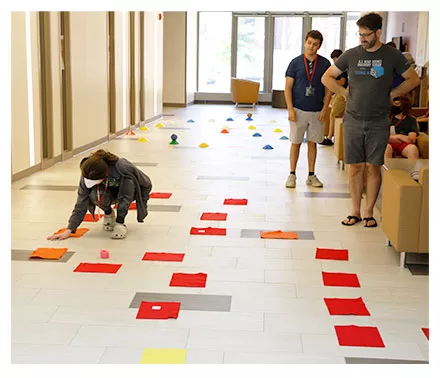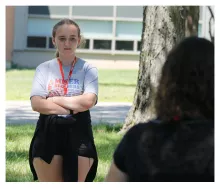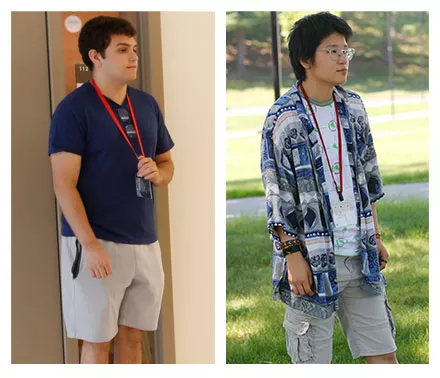With a group of students orbiting on the grass around her, Dr. Valerie Rapson taught this year’s Go STEM participants about the Earth’s rotation around the sun.
“That’s it…Keep moving!” The seventh- to ninth- graders moved their bodies according to Dr. Rapson’s direction. “Keep your heads tilted on your axis and turn as you move!”
They were learning as part of this summer’s Go STEM Institute on the SUNY Oneonta campus. Themed “A Journey Through The Cosmos!,” the one-week science, technology, engineering, and math (STEM) experience for young people took place July 18-22.
According to Doug Reilly, director of the A.J. Read Science and Discovery Center, the participants spend each day as if they were attending school to learn about science, but with no tests and a lot more fun.
Former college President Nancy Kleniewski was looking for a way to bring together different entities in Chenango, Delaware and Otsego counties to collaborate on STEM outreach. “The Go STEM Institute came about through that collaboration,” Reilly explained.
William Pietraface was the original administrator of the Institute in 2011, facilitated by the CDO-STEM Council and the Science Discovery Center, with Reilly taking over in 2017. Eight years later, the program is still going strong.
“We typically have about 24 participants each year, and we firmly believe in providing access to all who are interested, so we offer a sliding-scale tuition.” Each family can determine how much they can contribute to the program. “Tuition costs should not deter anyone from applying to the Institute,” Reilly said.
Last year’s event was held virtually, but it’s all hands-on this year. Students investigated the stars and constellations in the night sky, learned about the lifecycle of stars, explored the size and structure of galaxies, and even searched for planets beyond our solar system. Students also participated in Citizen Science projects to analyze actual telescope data and help astronomers make new scientific discoveries. By the end of the course, participants gained a much better understanding of the objects that make up the universe.
“And they get to keep their telescopes!” said Reilly.
The theme of each year's Institute is based on the interests of the faculty member who leads the program. Past summer programs have featured topics such as drones, synthetic biology and electronic music. This year, Dr. Rapson, assistant professor of physics and astronomy, wrote the curriculum and served as the lead instructor.
“I love teaching summer enrichment programs that allow young people to explore a topic they don’t normally learn much about in school,” she said.
“The night sky fascinates so many people, and through this program we can teach the students a little bit about how the universe works. Hopefully I will inspire some of them to become scientists in the future.”
In one activity, participants learned about how real Mars rovers, like Curiosity and Perseverance, are sent instructions for driving on Mars. The students observed a maze that simulated the surface of Mars, creating a simple set of codes that described how a person should walk through and complete the maze. One student then acted as the rover, was blindfolded, and followed the instructions to try and complete the maze. This simulation showed how the real Mars rovers are sent sets of code that they blindly follow. After multiple tries, the students could successfully navigate their “rover” through the maze and even pick up items along the way as part of an experiment.
One participant, Ali Farmer from Morris, says she signed up because her best friend was participating. Later she confessed, “I enjoy space. Sometimes I go on our back deck and look at the stars. Now I can understand more about them.”
SUNY Oneonta college students also got in on the fun. Joshua Ippolito, an Environmental Sustainability major from Westchester with a minor in Astronomy, and Hadley Chan, a Physics major from Sand Lake, are conducting research with Dr. Rapson and assisted with the Institute. Another assistant, Olivia Tolson of Otego, who is not yet in college, just wanted to help.
“I attended the Institute for three years and loved it so much that I wanted to volunteer this year,” she said. “Instead, they offered me a job working as an assistant!”
With funding from the Science Discovery Center and additional funds from The Ricky J. Parisian Memorial Scholarship Foundation, Reilly says the Institute provides much beyond learning science. “It can be a developmental opportunity for these kids,” he said. “They get to meet each other and realize that others are interested in science and aren’t afraid to explore.”
